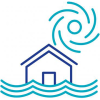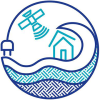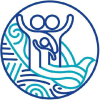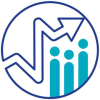Governments
Governments throughout the Pacific are responsible for the education systems in their countries and are accountable for their performance. They are tasked with monitoring, regulating and financing these systems to improve educational performance and achieve the benefits of a more educated society.
To do this, governments need good data about the performance of their education systems. The performance information collected by the PILNA programme is, therefore, highly relevant for Pacific governments and their ministries of education.
Literacy and numeracy are foundational abilities that enable further learning and participation in education. Data on student performance in these areas is crucial to understanding early learning achievement and the performance of education systems.
Government stakeholders will be interested in the findings for student performance, found in the ‘Performance’ section of this report. This section outlines student performance by domain (numeracy, reading and writing) and by year level (year four and year six).
Government stakeholders will also be interested in the comparisons to regional benchmarks in these areas (see regional benchmarks for literacy and numeracy performance), found at the end of each performance section.
The PILNA programme also collects contextual information for each student, their teachers, and their school leaders (principals or head teachers).
This information (see the Get to know section) helps to place the performance of students in context and allows the targeting of educational policy initiatives in areas that are likely to have maximum impact on student and school performance as well as social factors such as wellbeing.
The regional findings and recommendations for PILNA 2021 may also be of interest. The report provides recommendations for Pacific governments on developing deeper analyses on the factors and trends that affect student performance and on improving student performance across the region.
These recommendations are intended to be a starting point for discussions at local and regional levels about whether interventions of any kind are necessary for student performance or the environments of, and experiences within, education systems.
Country-specific breakdowns of these PILNA findings will become privately available to nominated national representatives soon. SPC-EQAP will communicate directly with these representatives when these findings are available.








